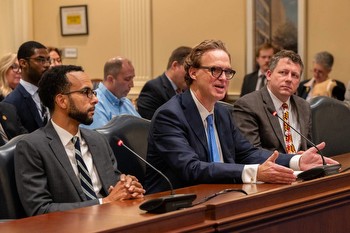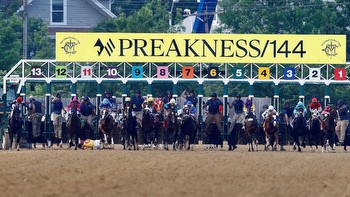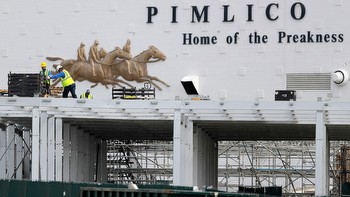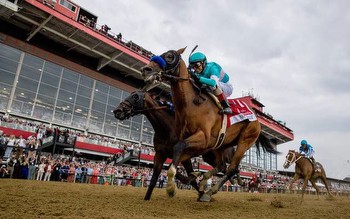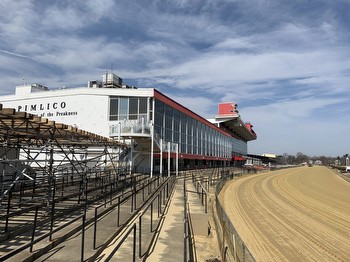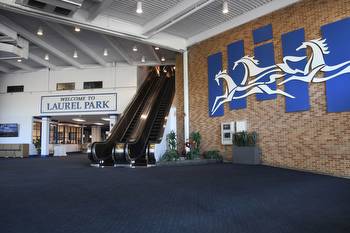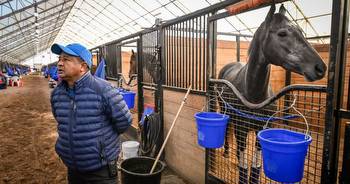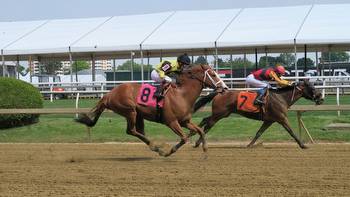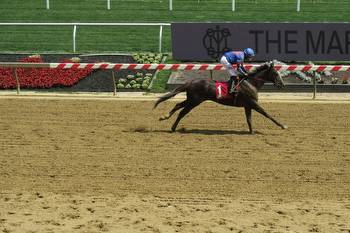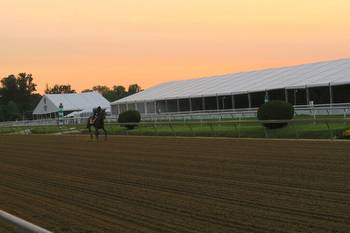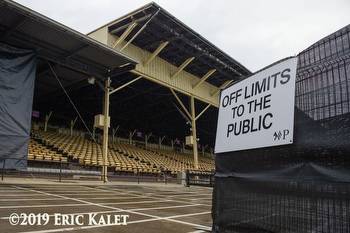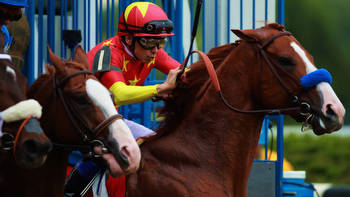MD politics: Plan for upgrading Pimlico, other thoroughbred tracks passes Senate
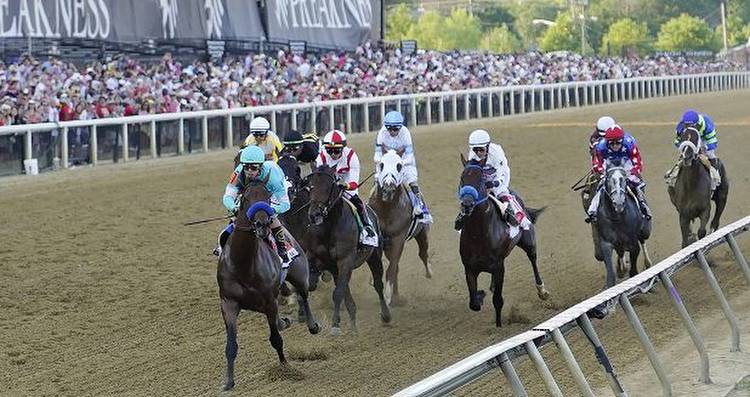
The Maryland state Senate on Thursday voted to bolster plans to upgrade Pimlico Race Course, home to the Preakness Stakes and part of thoroughbred racing’s Triple Crown, and Laurel Park in Anne Arundel County.
The bill, SB 720, awaits approval in the House of Delegates. Senate President Bill Ferguson, D-Baltimore, said it’s likely a final vote on the proposal won’t come until Monday, when the 90-day session is scheduled to end.
As part of the Senate’s measure, the city of Bowie would also assume ownership of the Bowie Race Course Training Center.
Shifting ownership of the Bowie track and improving Pimlico and Laurel Park were part of a plan lawmakers approved in 2020 to boost the state’s thoroughbred racing industry.
As part of that plan, the legislature approved up to $375 million in bonds to redevelop the Pimlico and Laurel Park racing sites. The Maryland Stadium Authority was expected to issue bonds totaling more than $330 million, the bill states.
Then came COVID and the various economic hurdles that it created.
“The best-made plans back then have been seriously changed based on interest rates, supply chain, construction, inflation — all those things,” state Sen. Guy Guzzone, D-Howard, said Wednesday. Guzzone sponsored both the 2020 bill and the measure the Senate approved Thursday.
Guzzone’s bill creates a stopgap measure should the entities that operate the state’s thoroughbred racing sites — the Maryland Jockey Club, which owns the tracks, the Maryland Thoroughbred Horsemen’s Association and the Maryland Horse Breeders Association — fail to reach an agreement by July 1, when their existing contract is set to expire, said Bill Cole, a Maryland Stadium Authority board member.
The deadline is the result of a six-month extension. The three entities were scheduled to renew their agreement in January.
The stopgap would be the Maryland Thoroughbred Racetrack Operating Authority, a new body that would assume operation of the state’s thoroughbred tracks if the parties don’t reach an agreement this summer and the state needs to “break the glass,” Cole said.
“The bottom line is that between now and when we come back in January next year, we want to make sure that we’re in a position to see that the tracks continue as decisions are being made,” Guzzone said.
The bill also extends by 10 years the sunset of the Maryland Horse Racing Act and the Maryland Racing Commission, established more than a century ago to regulate horse racing and wagering.
The Maryland Racing Commission is one of about 60 regulatory bodies subject to termination unless the legislature periodically reauthorizes them, according to the bill.
If the bill passes, it will take effect June 1. The Maryland Thoroughbred Racetrack Operating Authority would terminate after four years, an indication that lawmakers remain uncertain about whether there will be a long-term solution, said Ferguson.
“But for the Preakness, I think that there is a waning level of engagement amongst legislators in Maryland,” Ferguson said. “That’s not good for the thoroughbred racing industry, for the agricultural community that depends on the thoroughbred racing industry to survive.”
